Consumers around the world can easily find reasons not to be cheerful at the moment. The news is packed with doom-laden items – ongoing war in Ukraine, climate change, accelerating cost of living and inflation, among other things. We are told that consumer confidence is plunging in developed world markets, and that a recession, if not already here, is inevitable within the next few months.
And yet, paradoxically, other measures are telling a very different story. In most larger economies, unemployment remains at historic lows, house prices remain buoyant, restaurants and bars are packed, and airports teem with people jetting off to the sun. As IWSR reported last week, the trend in alcohol sales by value is uniformly positive over the past year, and up in all categories versus 2019.
Perhaps the most crystallised version of this dichotomy can by found in two of the oldest and most venerated consumer surveys of economic confidence in the US: the Conference Board Index of consumer confidence, and a survey of consumer sentiment run by the University of Michigan. The latest readings of both show a startling divergence. The Conference Board survey, which surveys 3,000 households every month with a short survey, places more emphasis on changes in job and perceptions of job security, so can be seen as a proxy for confidence in the labour market, while the Michigan study, which polls 500 households but with more detailed questions, tends to be more reactive to changes in household costs, such as rising fuel prices.
The results in May (in Michigan’s case, preliminary data) showed that the Conference Board index was trending downward in 2022, but at 106.4 was still above the 1985 baseline and, crucially, way above the sort of readings that might accompany a recession (in 2009 the index fell below 30). Contrast with the Michigan result for May of 59.1, continuing a slide that started in July 2021 and showing all the patterns of a recession (in 2009 the index bottomed out at around 55).
So what’s going on? The great economist John Maynard Keynes recognised early on in his career that no rational economic model could do justice to human behaviour. Instead, he advocated a level of human understanding in economic planning that went beyond the purely cost-benefit and incorporated such factors as ‘animal spirits’ in their decision-making.
In The General Theory of Employment, Interest and Money, he wrote: ‘If human nature felt no temptation to take a chance, no satisfaction (profit apart) in constructing a factory, a railway, a mine or a farm, there might not be much investment merely as a result of cold calculation’. In other words, we do things not necessarily because they are rational, but because we want to do something that interests us and makes us happy beyond monetary comforts.
Studies in recent years have focused on why we can maintain contradictory concepts in our head at the same time – part of our unique evolutionary ability for cognitive dissonance. In his excellent book, Sapiens, historian Yuval Noah Hariri argues quite persuasively that this ability is central to our progress as a species. Other studies have shown that we can be pessimistic for the future of society as a whole while at the same time optimistic about our own progress within that society. One particularly interesting study from NYU suggests some empirical truth in the old adage that you can think yourself into a better future through positive visualisation, and vice versa.
How does this affect our behaviour as consumers in the alcohol category? The evidence from Wine Intelligence surveys over the past 15 years, plus analysis from IWSR, suggests that recessions, or at least economic uncertainty, tend to have less negative impacts on beverage alcohol than they do on other categories. A tough recession might cause us to pause a big purchase, such as a car or a house, or defer that holiday of a lifetime, but there will still be room in my budget for smaller ticket items that make me happy or reward me – for instance, a drink with a friend on a Thursday evening or a fancy caramel latte on a Saturday morning. Post recession, as IWSR analysis discovered, premiumisation in alcohol tends to accelerate faster than other categories, as we celebrate that new job or promotion with an upgraded drink; meanwhile real estate, travel and consumer durables sectors need to wait longer for a post-recession upturn.
The Wine Intelligence consumer sentiment data also holds another lesson, which was also apparent during the ‘artificial’ recession caused by Covid-related lockdowns. Our data showed that, during Covid, regular wine drinkers tended to stay loyal to the wine category, and indeed trade up to more expensive product, if they had high involvement in wine, measured by agreement with such statements as “wine is important to my lifestyle” and “I like to take my time when I purchase a bottle of wine”.
Over the next few months, as we release Wine Intelligence’s 2022 Landscape reports series, we will be tracking how consumer sentiment will be translating into wine category purchasing behaviour, and we will continue to test whether this hypothesis holds. It will be especially interesting to note the extent to which consumers will allow cognitive dissonance to govern their decisions: will they give up the restaurant date on a Friday night for an upscale meal at home (as they did during Covid)? Or will they scrimp on coffees and workplace lunches out during the week so they can have a blowout at the weekend? And can we predict how consumers will respond depending on who they are, or what attitudes they hold (or don’t hold) about wine?
You may also be interested in reading:
- Why has our relationship with wine changed in the Covid-era?
- Which key macro factors are driving the global wine industry in 2021?
- Millennials drive the sparkling wine category
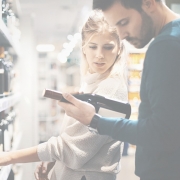
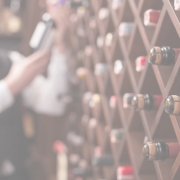
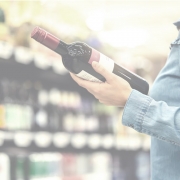
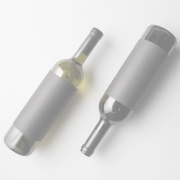


Leave a Reply
Want to join the discussion?Feel free to contribute!